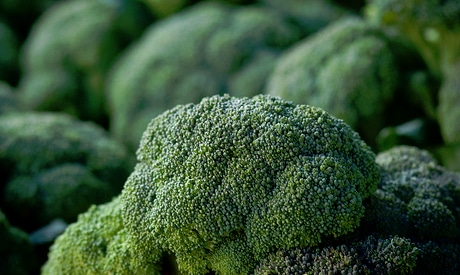
When someone sees that meat, eggs or produce are certified organic by the U.S. Department of Agriculture (USDA), they assume that strict standards are required. That may not necessarily be the case, as the USDA’s National Organic Program has come under criticism lately. An op/ed piece in the San Jose Mercury News reports that the USDA refuses to implement the National Organic Standards Board’s (NOSB) animal welfare standards regarding poultry. The standards, according to the op/ed piece, would have required “animal welfare improvements from the five massive organic egg farms that provide the worst hen welfare.” Farm Sanctuary, a non-profit organization, attributes the USDA’s refusal to adopt the standards as appearing “to be an effort to protect five massive ‘organic’ egg producers.”
The op/ed piece also pointed out that the USDA’s Office of the Inspector General has issued two audits on the USDA’s National Organic Program (NOP) which found problems with the way animal welfare standards are applied. The latest audit, released this year, found a number of problems with the NOP’s dairy certification. One of the problems the audit found is that the NOP needs to clarify its origin of livestock rule. “We found that certifying agents were interpreting USDA organic regulations differently,” the audit stated. “Some allowed organic herds to continue to be transitioned and producers to add cattle to organic herds. This occurred because the regulations are not clear in defining herds of organic cattle and need to be made more specific.” Read more about eating organic foods
The audit found problems concerning the feed allowed to be used by organic milk producers. More specifically, organic milk operations may be able to use the services of organic-feed brokers who are not NOP certified when buying organic feed, which fails to “ensure non-commingling and non-contamination of organic feed.” There are also problems when it comes to inspections. Certifying agents that conduct yearly inspections of organic milk operations didn’t take consistent enforcement actions when noncompliance issues were identified by inspectors or reviewers, according to the audit. “This occurred because NOP enforcement guidance is not clear and specific as to what actions certifying agents must take when a noncompliance is classified as minor,” the audit stated.
A 2010 audit by the Office of the Inspector regarding oversight of the national organic program found that NOP officials need to improve “program administration and strengthen their management controls to ensure more effective enforcement of program requirements when serious violations, including operations that market product as organic while under suspension, are found.” The audit also found that the NOP needs to strengthen its oversight of certifying agents and organic operations.
Will laxity be the new rule?
An announcement a few months ago by the NOP indicates that laxity may become a rule. In September, the NOP announced a new policy that allows the indefinite use of synthetic and non-organic materials in organic production. Until the new policy, the NOP only allowed those substances for a limited amount of time. The new policy allows that after five years, the NOSB could vote to allow the extended use of a substance with a two-thirds majority vote if a convincing case is made by the substance users.
Problems with the NOP mean that consumers can’t be as confident about the quality of the organic products they buy, and consumers should be able to have complete confidence that the food they eat is safer and grown or raised in an environmentally friendly and humane way.
Read more about preserving the environment
Without a doubt, organic is still your best option, but to make sure it remains your best option, take action and demand that the USDA reconsider its decision to not implement the NOSB’s animal welfare recommendations by signing the Farm Sanctuary’s petition.
Photo Credit: USDAgov




